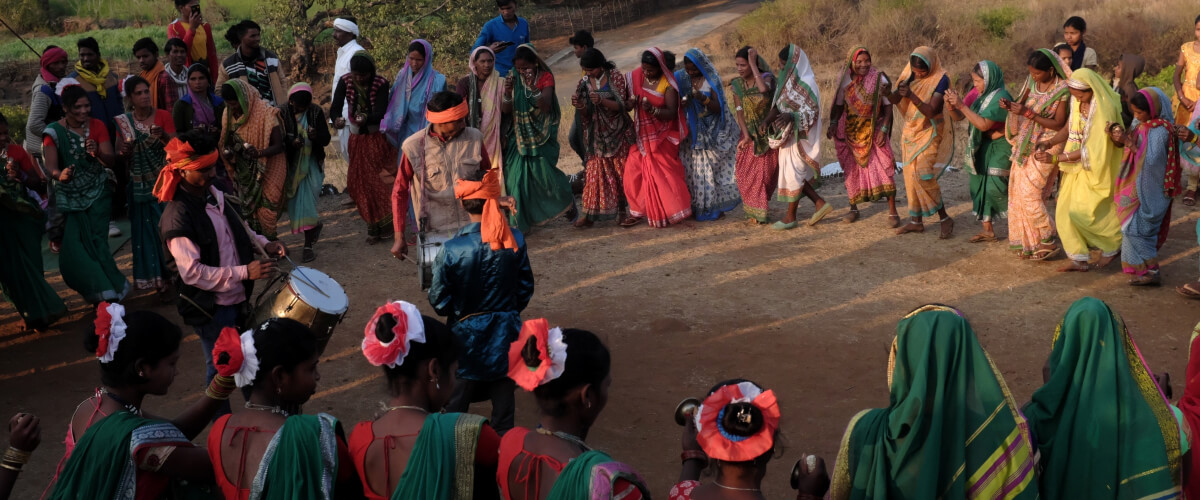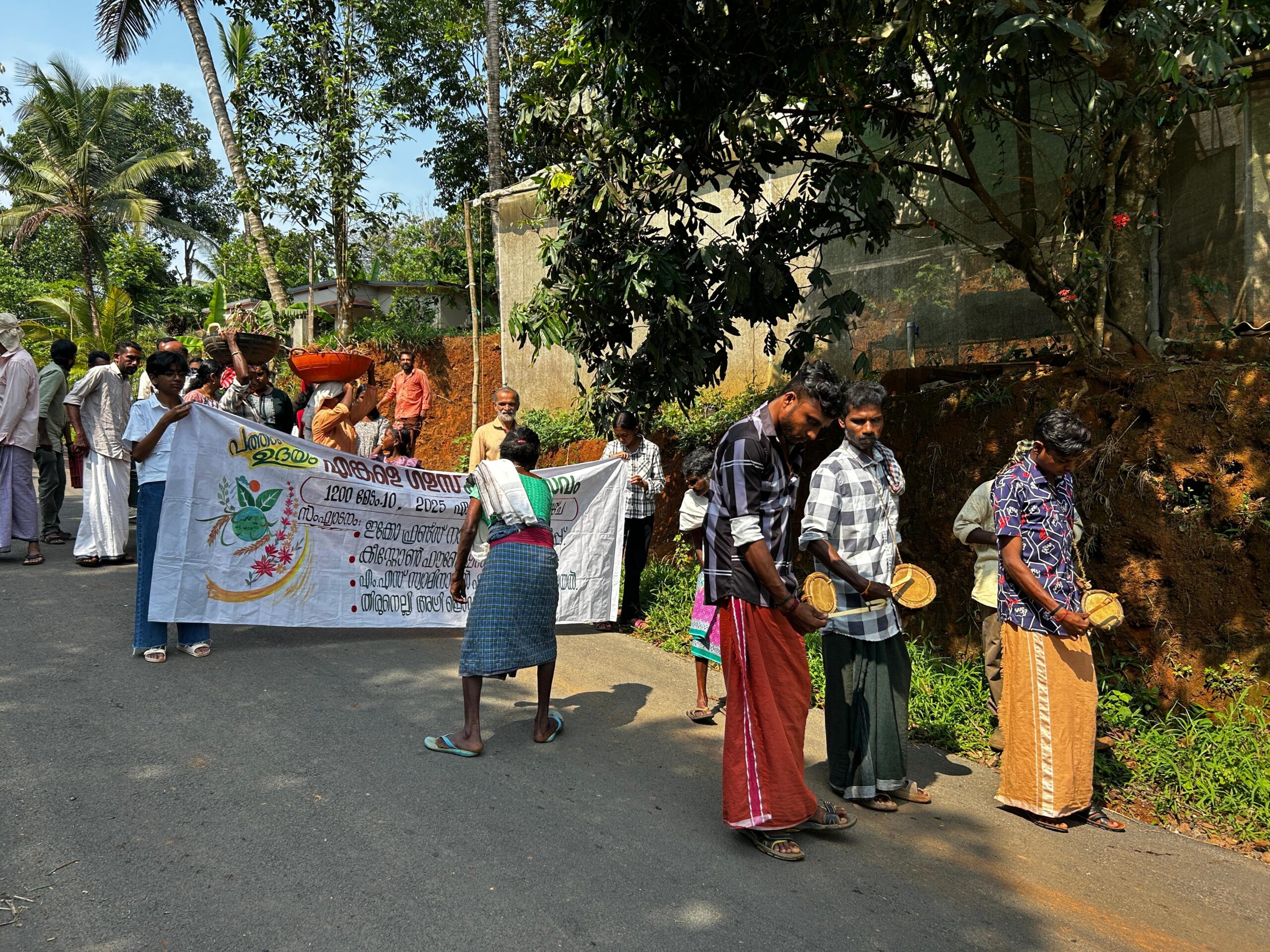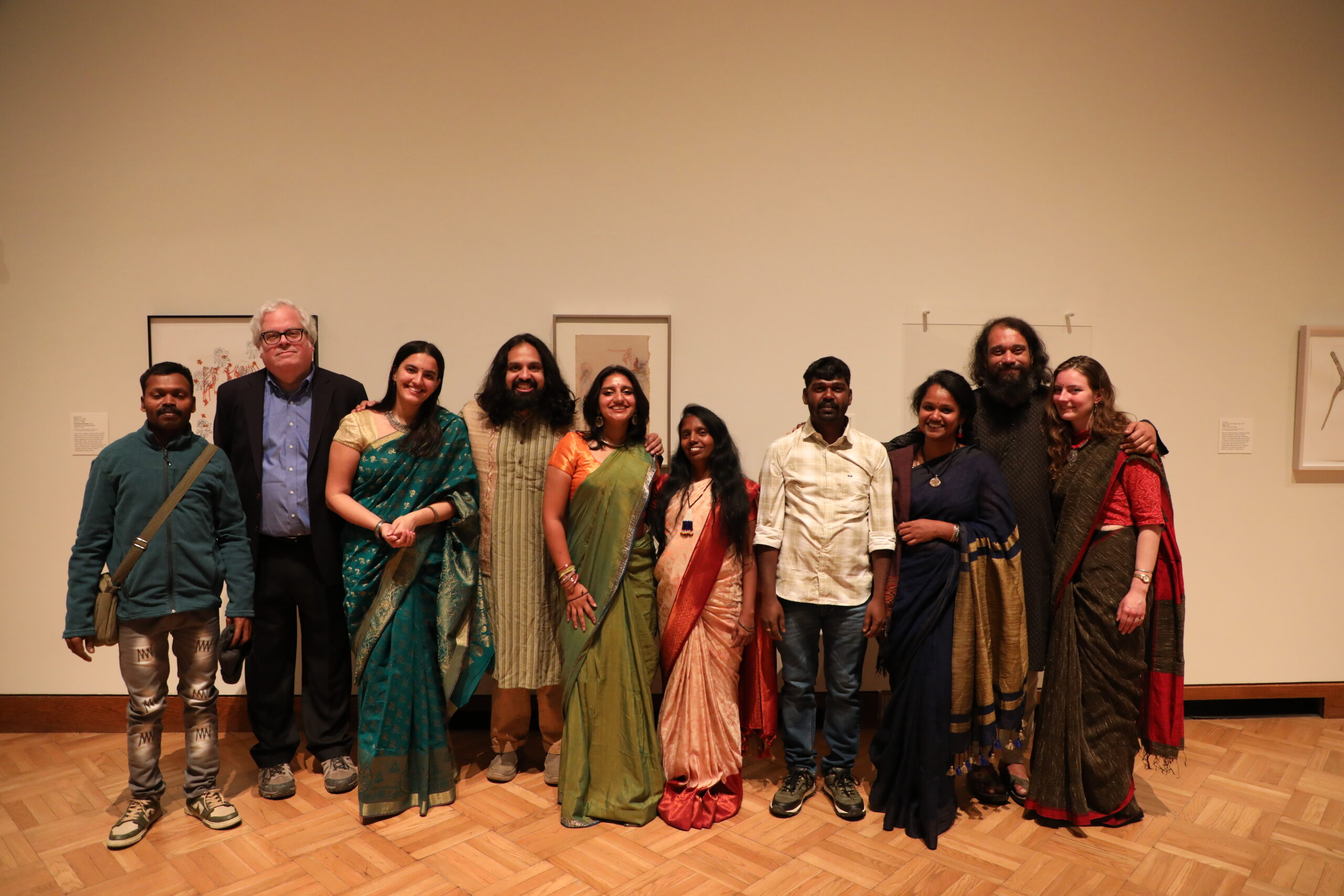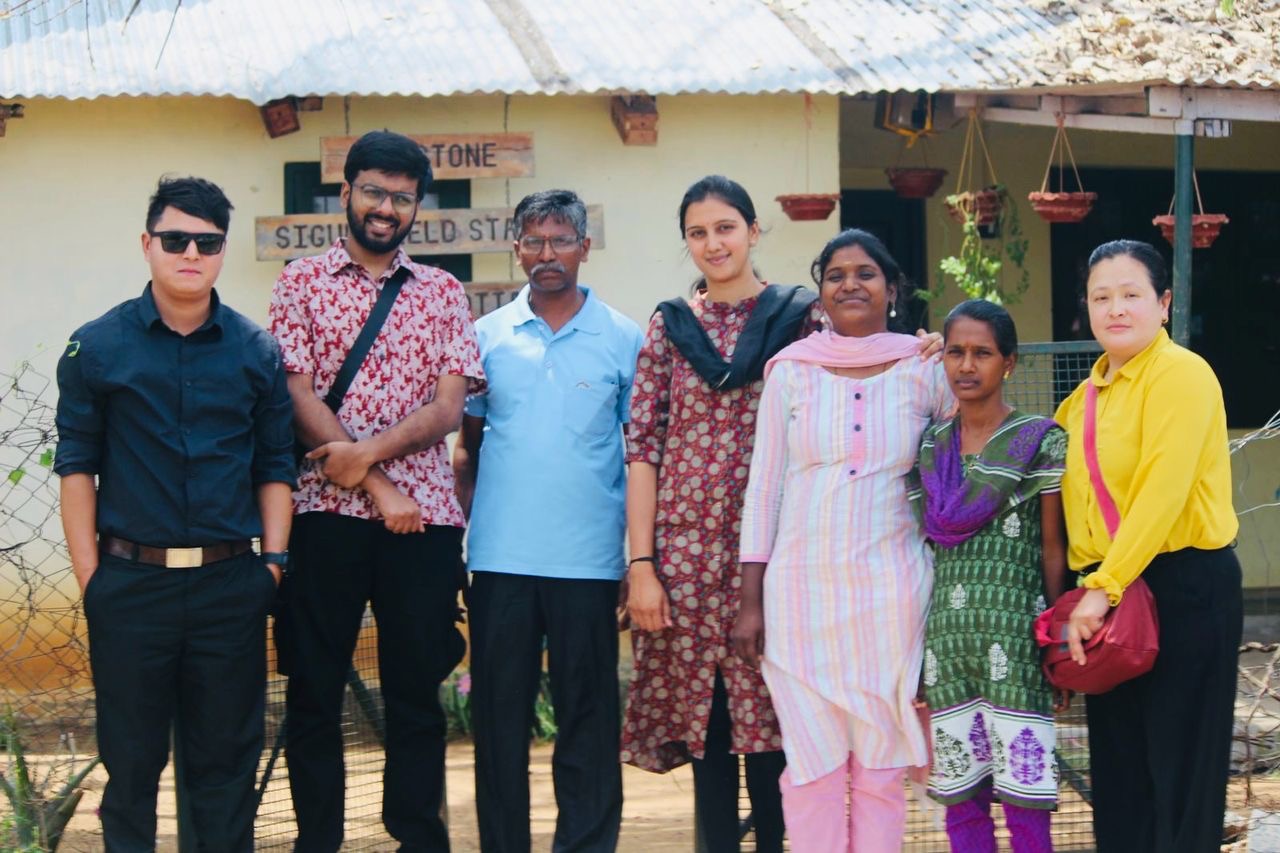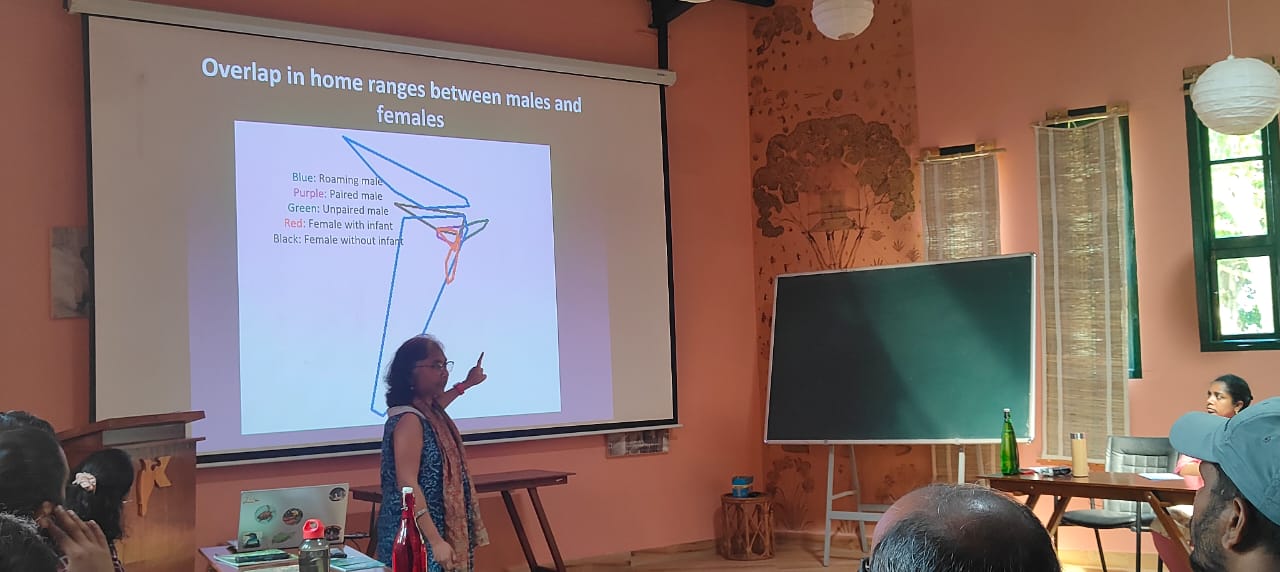Gaildubba Village, Patalkot, Chhindwara, Madhya Pradesh 20th February 2021
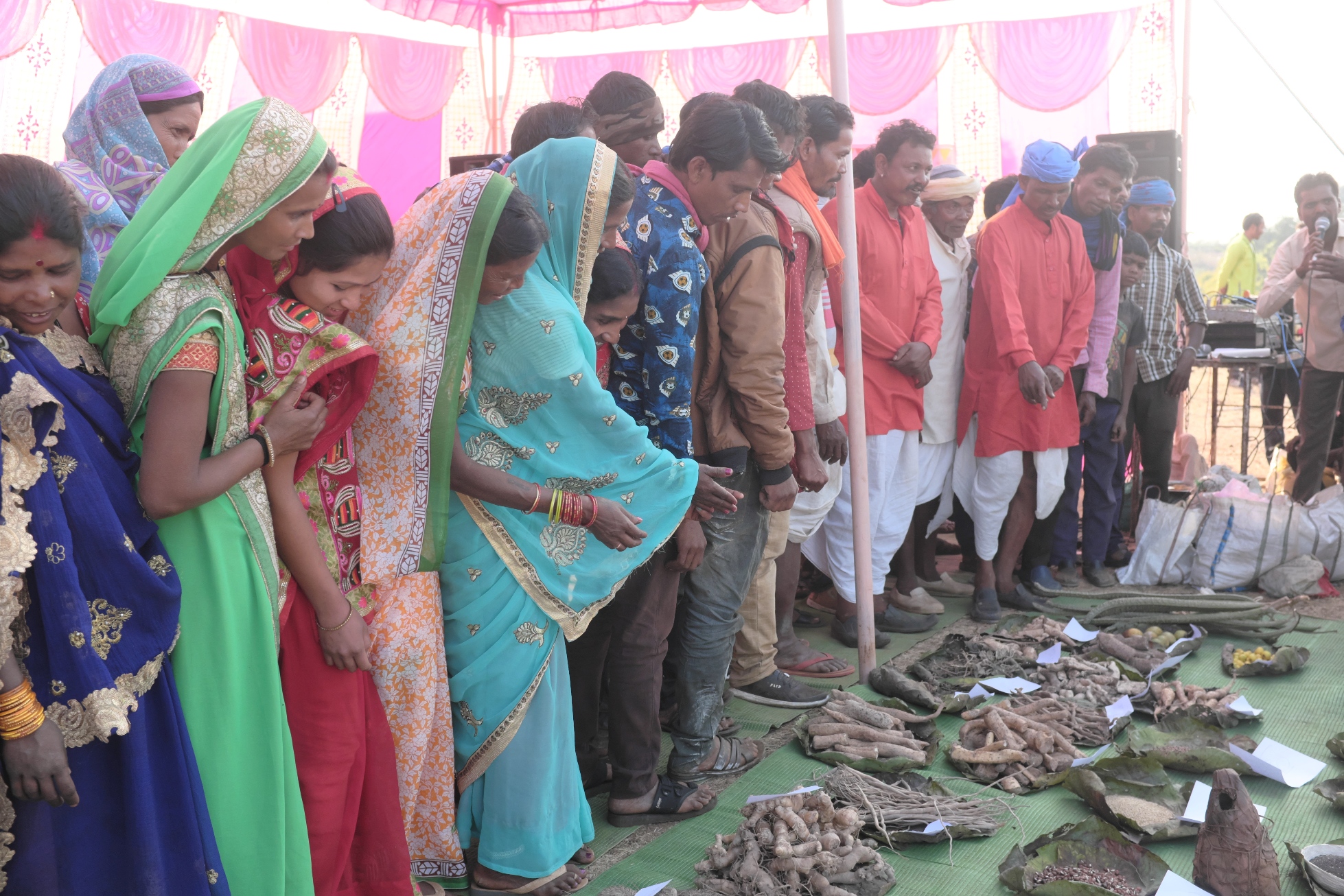
The Using Diversity (UD) Network, though Nirman the partner NGO in Madhya Pradesh, has been working in Patalkot since 2017. Patalkot as the Sanskrit origin of its name suggests is a deep valley spread over 79 km2 located 78 km from Chhindwara in Madhya Pradesh. This unique horse-shoe shaped valley is surrounded by hills with several pathways and recently developed roads to reach the 12 villages located within the valley. Patalkot’s villages are home to Gonds and the Bhariya community which is classified as one of India’s 75 PVTGs. The Using Diversity network has been working closely with local communities across Patalkot’s 12 villages to promote the strengthening and revival of traditional food systems which comprised of traditional mixed cropping agricultural systems and the collection of a variety of wild and uncultivated foods from the rich forests of the region. The local partner NGO Nirman has also been working closely with community leaders and other stakeholders to enable the community to make Habitat Rights claims under the Forest Rights Act (2006).
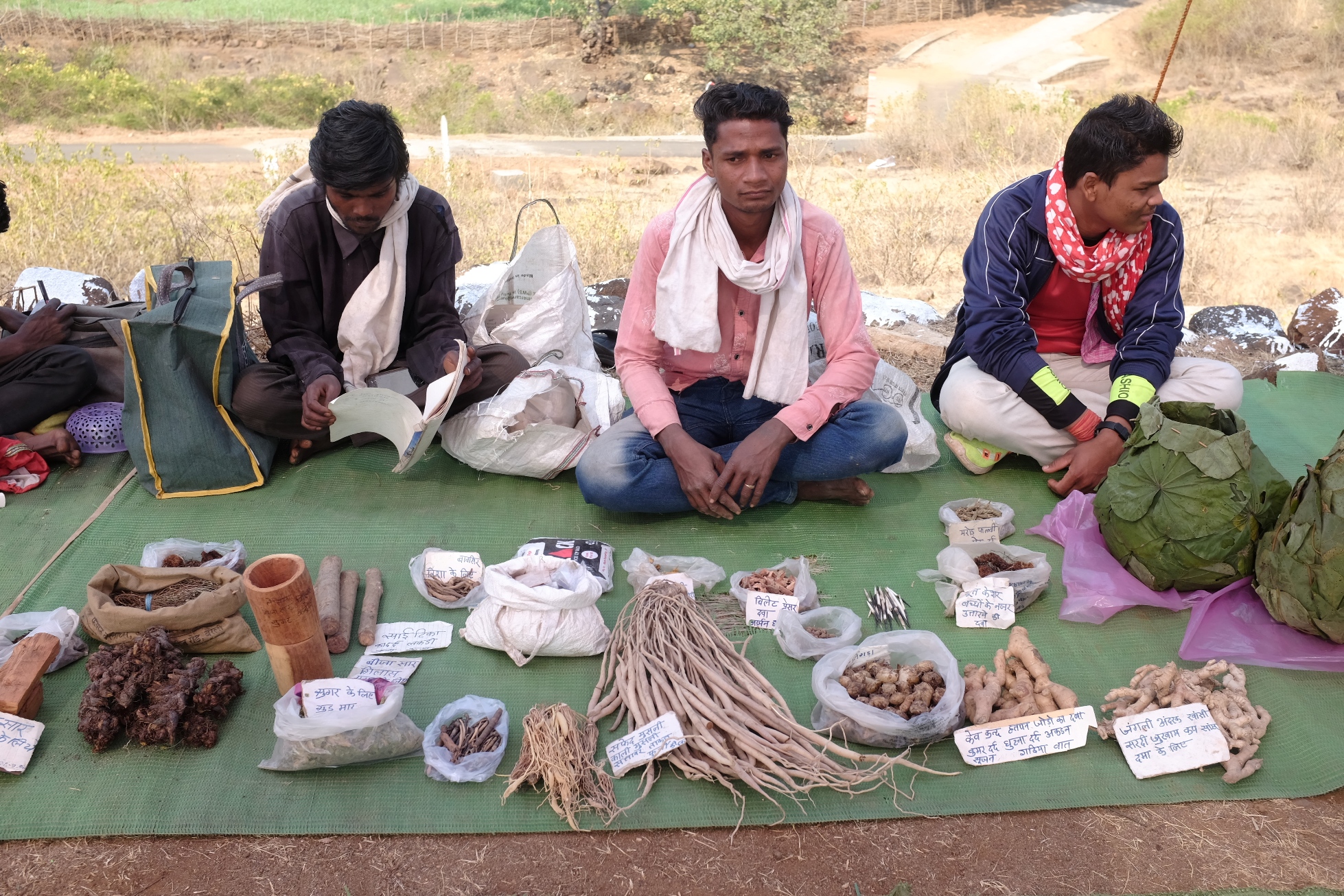
On the 20th of February 2021, over 500 villagers from Patalkot’s 12 villages came together to celebrate the rich crop and uncultivated food diversity at Gaildubba village. The aim of the Mela was to bring the community together to celebrate efforts to strengthen and protect traditional food systems, highlight the importance and benefits of traditional agricultural practices and crops, wild and uncultivated food and medicines. It also served as a platform to discuss challenges facing the region and strategies to come together collectively to formulate and implement plans like making Habitat Rights claims.
The display comprised of a variety of local millets, pulses and legumes like Bajra, Madia, Sama, Kodo, Kala Kang, Rajgura,Bewri, Kangni, Jowar, Kutki, Sikiya, Safed Semi and Bichu Semi. Several wild tubers, fruits and leafy vegetables were also on display. Patlkot is famous for its traditional healers and medicinal practitioners and a number of traditional healers like Bhattu Pachliya from one of the villages participated in the Mela and displayed a variety of medicinal plants and traditional tools for preparing medicines.
Community leader and village elder Kisanlal Dadaji from Harmahu Sukhabhand village inaugurated the event and shared his experiences about local foods. He reminisced about how in the past they made a variety of items from wild foods like roti made using Semul flowers and used medicinal plants to treat illnesses but currently these practices and the associated knowledge is disappearing. He also helped fellow villagers identify the different seeds and uncultivated foods on display listing their uses and benefits. The Patel of Gaildubba village Bhagllu Bharti also extended his wholehearted support to the event. He has been actively involved the movement to claim for Habitat Rights in Patalkot and he emphasised the threat of displacement that the villages of Patalkot face and highlighted the need to come together as one and claim Habitat Rights as provided for by the Forest Rights Act so that they can secure rights and access to the lands and forests that have sustained their ancestors for thousands of years. The Sarpanch of Rated Chimtipur Panchayat ShreematiDasri Bai was also present at the event.
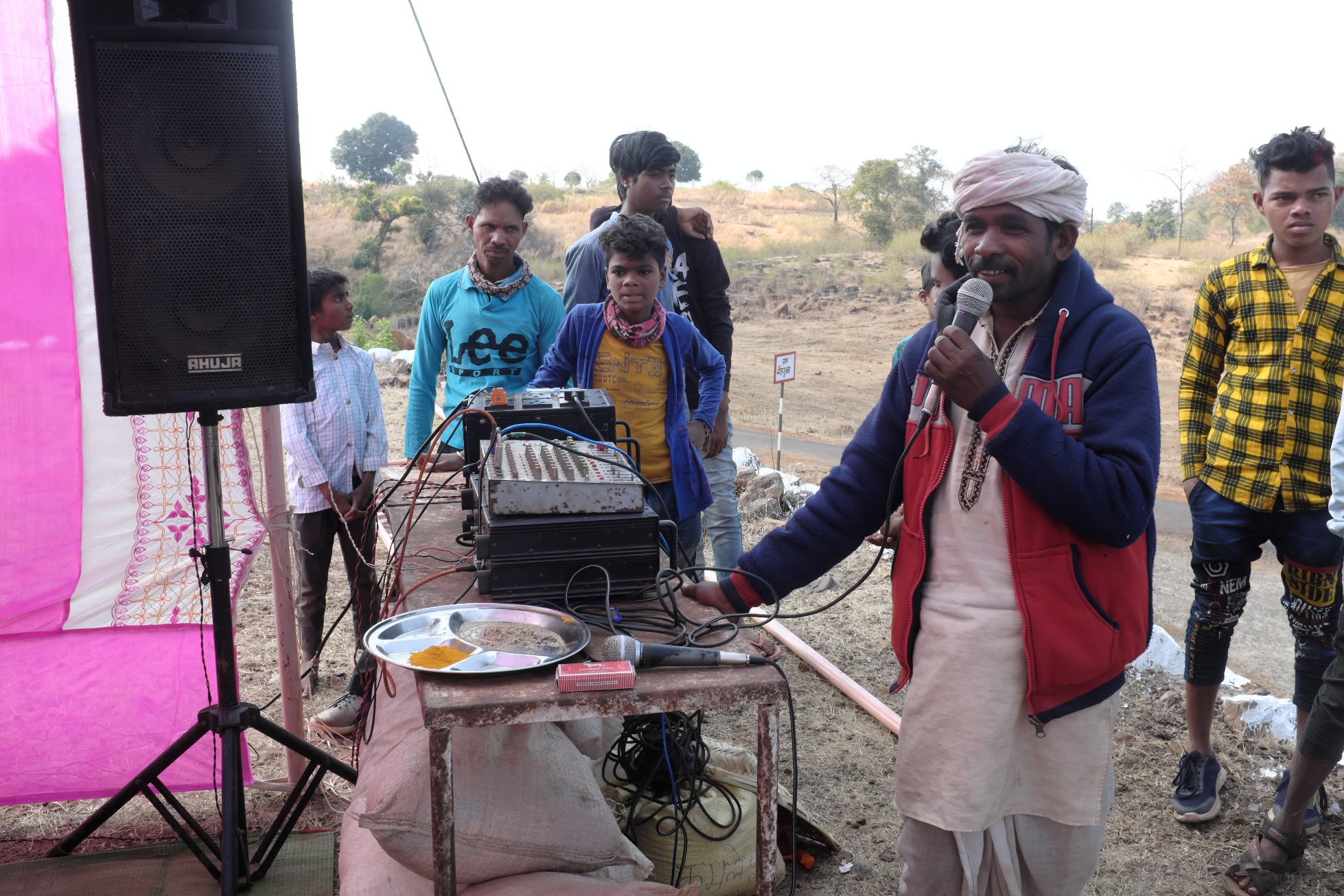
The villages of Patalkot have a rich tradition of song and dance and diverse groups from different villages performed several traditional songs and dances with active participation and encouragement from all present. The performances included –
- Bada DholNaach, which is performed during weddings, by a group from Charadhanevillage
- SaitamNaach by a group from Harrakachar village
- Dulha Dulhan Mala Geet by Panchami Samuh of Ghana Kodia village
- SaitamNaach by Sita Samuh from Ghana Kodia village
- Ram Dhol by a group from DoriaPatha village
- SaitamNaach by a women’s group from JadhMadal with Chotelal Bharti from HarraKachar on the Dhol
- Phagun ka Gana by a group from JadhMadal
- Sail Nritya by a group from Gail Dubba
- PhagunGeet by a group from Ghana Kodia
- Saitamnaach by Seta Mandal from Rated village
The Mela concluded with a traditional meal of Kutki(little millet) and Balhar ka daal.
UD fellows Gyansa Khamaria and Laxman were responsible for the organisation and coordination of the program. Several members of the community extended their support to ensure the success of the program. Sukesh Uike, Bal Kisan and Partibhanhelped out in logistics, Mohan Bharti and Pradeep Bharti from Gaildubba prepared the food while Kondi Chote Dhane Samiti provided the tent and sound system. Bhagllu Bharti ensured that the villagers of Gail Dubba extended all possible support.
By Rohan Mukerjee

